Looking for a stylish, well-equipped SUV with room for up to six, good performance and low energy costs? Hyundai is betting it has the right product for you. The Korean carmaker’s 2025 Ioniq 9, a spacious well-equipped 3-row EV, makes its debut at the LA Auto Show this week. And Headlight.News got a chance to check it out before the official unveiling at the LA Convention Center.
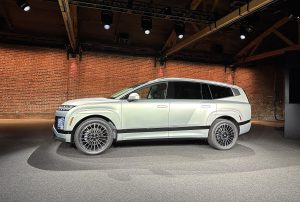
The 2025 Hyundai Ioniq 9 is one of the biggest vehicles in its class and despite the subtle curve to its roofline delivers ample space for up to seven passengers.
There’ll be some big news coming out of the LA Auto Show this week. In Hyundai’s case, that means the big Ioniq 9, the newest — and largest — member of its growing EV family. While it shares some critical underpinnings with both the compact Ioniq 5 crossover and Ioniq 6 sedan, the 2025 Hyundai Ioniq 9 is a near full-size, three-row EV going after much the same sort of customer as the automaker’s gas-powered Palisade SUV.
As with the rest of the Ioniq line, the 3-row model is stylish, well-equipped and makes good use of its battery-electric drivetrain. That translates into a roomy cabin, solid performance and significant range, up to 335 miles depending upon the powertrain package.
Hyundai chief Jose Munoz later noted that all versions of the the Ioniq 9 “will get more than 300 miles of range.”
Making its formal public debut at this week’s LA Auto Show, Hyundai offered Headlight.News an advance look at the new electric crossover and here’s what we learned.
What’s an Ioniq 9?
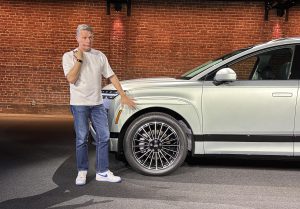
Designer Simon Loasby points to the distinctive insert over Ioniq 9’s wheels. That provides flexibility for future trims, possibly an XRT model, he told Headlight.News.
Hyundai’s newest EV could be thought of as the battery-electric equivalent of the automaker’s popular Palisade crossover, though it strongly resembles the Concept 7 that the Korean carmaker first revealed in Los Angeles three years ago.
It measures 199.2 inches in total length, with a width of 77.95 inches, a height of 70.5 inches and a 123.2-inch wheelbase. It comes within a couple inches of competing 3-row electric EVs such as the Tesla Model X, the Rivian R1S and, from its Korean sibling, the Kia EV9.
Those dimensions don’t tell the whole story, however. Mounting the battery pack and key drivetrain components under the load floor frees up space normally devoted to the engine compartment. In turn, you get an unusually large cabin, bigger than its already big exterior footprint might suggest. Buyers can choose a 6- or 7-seat interior layout but, even in the back row, there’s plenty of head, shoulder and leg room. No penalty box this.
Even with the back row up, Ioniq 9 offers 21.9 cubic feet with the back row up, of cargo space, jumping to 46.7 cf with the bench folded down – both segment-leading numbers. And you’ll also get some concealed, lockage storage thanks to the frunk under the hood.
Design, Part I
While it boasts its own, unique features, there are some strong similarities between the various Ioniq models, notably the pixelated lighting front and rear.
Hyundai designers are willing to make some distinctive, out-of-the-ordinary moves, and the large, angular D-pillar, which flows into a slash line across the rear doors, has already generated buzz – and debate – among we journalists who’ve seen the Ioniq 9 ahead of its LA debut.
Another distinctive touch: the wide inserts above the front and rear wheel wells. In an exclusive interview, designer Simon Loasby explained that these removable panels will allow Hyundai to come up with some other trim variants in the future. One it’s giving serious consideration to: an off-road-oriented XRT trim package.
More Hyundai EV News
- First Drive: Hyundai’s Outrageous Ioniq 5 N Performance EV
- Exclusive: Hyundai Rethinks EV Plans; May Build Gas, Hybrid Models at New EV Plant
- Hyundai Begins Production at $7.6 Billion EV Plant in Georgia
Design, Part II
The layout of the Ioniq 9’s cabin will seem familiar to those who’ve spent time around the earlier Ioniq 5 and 6 models – albeit in a much larger, 3-row form. There’s an elegance to the simplicity, with an emphasis on functionality – touches as the center console that can slide between front and center row if you opt for the 6-passenger layout.
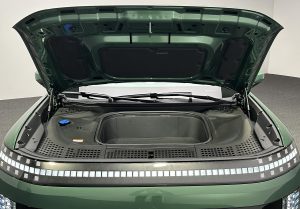
The 2025 Hyundai Ioniq 9 features a frunk where the engine would sit in a similarly sized Palisade SUV.
The instrument panel is certain to catch your eye, wherever you sit, thanks to a gently curved, panoramic screen that stretches across much of the instrument panel. The single glass pane actually conceals twin 12-inch displays, one for the requisite driver gauges, the other an infotainment touchscreen.
During our backgrounder, Hyundai offered a peak at both the U.S. and European versions of the 2025 Ioniq 9. Sadly, Americans will miss out on one of the global model’s more interesting features: its bulky sideview mirrors replaced by a pair of smaller cameras. Their images are displayed on small monitors mounted to the fore of the front doors. Long the stuff of pie-in-the-sky concept cars, exterior cameras have now been approved for use in several markets – but not in the U.S. They have several advantages: reducing wind noise and aerodynamic drag, amongst them.
Powertrain
While other variants may follow – such as an XRT or N – Hyundai launches the 2025 Ioniq 9 with three powertrain choices:
- Ioniq 9 Long-Range RWD draws on a single rear motor producing 215 horsepower and capable of launching from 0-60 in 8.4 seconds;
- Ioniq 9 Long-Range AWD adds a second motor on the front axle. It adds 80 hp; and trims launch times to 6.2 seconds;
- Ioniq 9 AWD Performance uses identical 160 kW motors, front and back, to boost combined output to 422 hp, yielding launch times of 4.9 seconds.
All versions of the electric SUV are powered by a 110.3 kWh lithium-ion battery pack. For the moment, Hyundai has released range numbers only for the base RWD package – an impressive 335 miles, according to the EPA. Meanwhile, the SUV is rated at a maximum 5,000 pounds towing capacity.
Charging
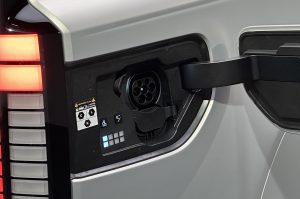 Hyundai’s luxury spinoff, Genesis, is also making news in LA. Its updated Electrified GV70 crossover is set to become one of, if not the, first model to migrate from the old CCS charger port to Tesla’s NACS standard – gaining access to the rival’s vast Supercharger network. While Ioniq 9 will stick with the CCS port initially, it will migrate to CCS early in its lifecycle. Meanwhile, an adapter will be available.
Hyundai’s luxury spinoff, Genesis, is also making news in LA. Its updated Electrified GV70 crossover is set to become one of, if not the, first model to migrate from the old CCS charger port to Tesla’s NACS standard – gaining access to the rival’s vast Supercharger network. While Ioniq 9 will stick with the CCS port initially, it will migrate to CCS early in its lifecycle. Meanwhile, an adapter will be available.
One of the good things about Hyundai’s E-GMP architecture is that its electrical system operates at dual 400 and 800 volts. The higher figure kicks in when plugged into a fast enough public DC charger. At 350 kW – the most currently available – Ioniq 9 can go from a 10 to 80% state-of-charge in as little as 24 minutes, Hyundai claims.
We’ll have to wait for other charging data but, in line with the Kia EV9, expect to take 8 hours or more to fully replenish a drained battery when plugged into a home Level 2 charger at 240 volts.
Technology
There was a time when automakers competed to see who could offer the most airbags, then the most cupholders. Now the race is to add more USB plugs. Hyundai may not win but Ioniq 9 certainly will show. It not only offers 10 USB-C ports for all three rows but they’re super-fast 100-watt outlets.
As with the rest of the Ioniq line-up, the big SUV’s battery can be tapped into – what’s called Vehicle-to-Load – to provide energy for a camp or worksite, for example, or to power up a home during a blackout.
There are plenty of other nice touches: a sliding tray that bathes your smartphone in sterilizing UV light. Active noise cancellation and, for those that want to make plenty of noise, a 14-speaker Bose 5.1-channel sound system is optional, with an 8-speaker package standard.
Ioniq 9 features a built-in Alexa-style voice assistant and adds Apple CarPlay and Android Auto. Speaking of smartphones, the EV’s OTA technology allows Hyundai to send software updates to fix glitches or offer updates and even entirely new software-driven features. This “Features on Demand (FoD) service is a unique offering that allows IONIQ 9 customers to further personalize their vehicle with digital upgrades purchased from the online store,” Hyundai noted in a statement.
Pricing and availability
Prototype production of the 2025 Hyundai Ioniq 9 has already begun at the automaker’s $7-billion Metaplant in Georgia. Expect the first retail models to reach U.S. showrooms during the first half of 2025, the company says.
Pricing will be revealed closer to the on-sale data but if Hyundai sticks close to what we’ve seen with the Kia EV9 that would mean a base price of around $56,000 – before factoring in delivery fees and discounts. EV9 tops out in the low $80,000 range.
By building the SUV in the U.S. Hyundai buyers may wind up qualifying to get federal tax credits, though that also depends upon factors such as where the batteries are sourced. More to come on that. Due to a legal loophole, however, lease customers likely will get some or all of the incentives which could go as high as $7,500.

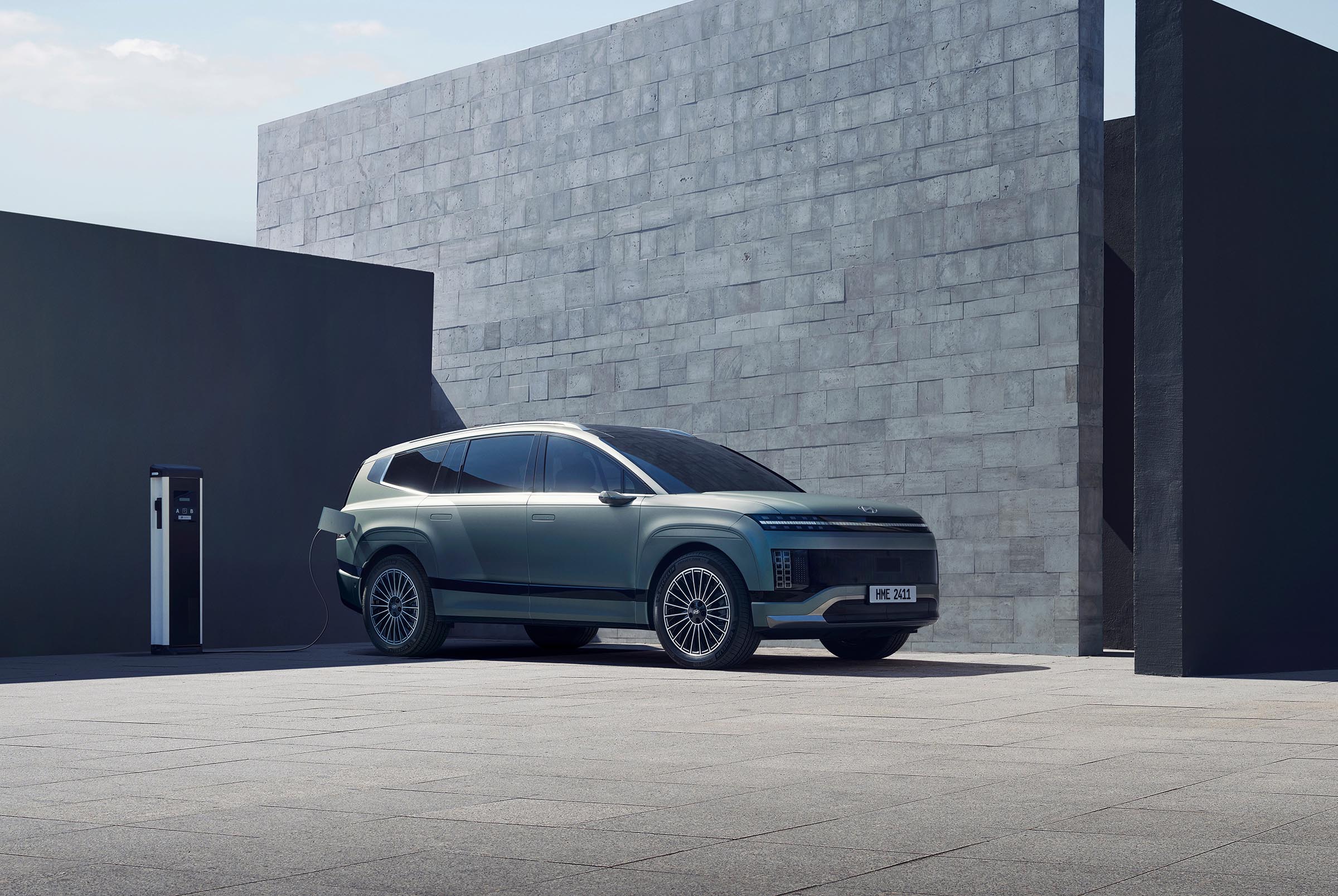
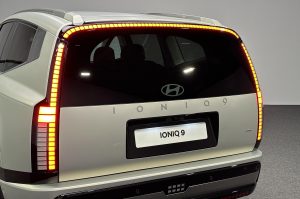
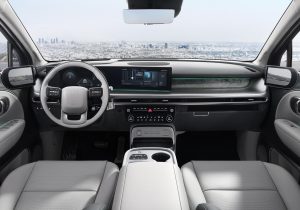
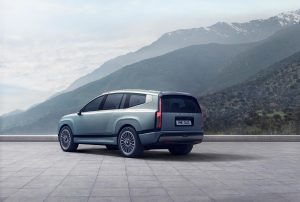
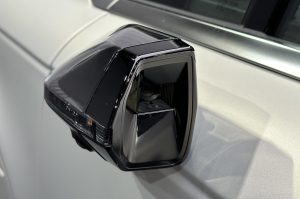
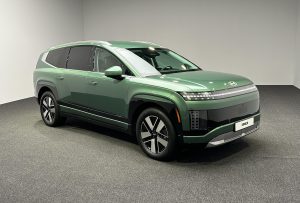
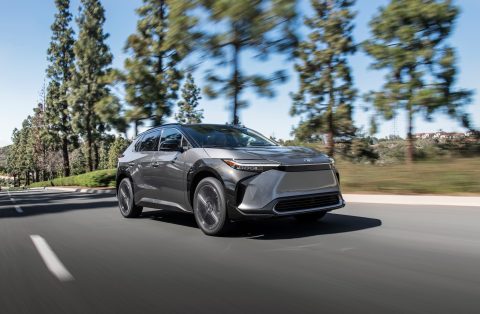
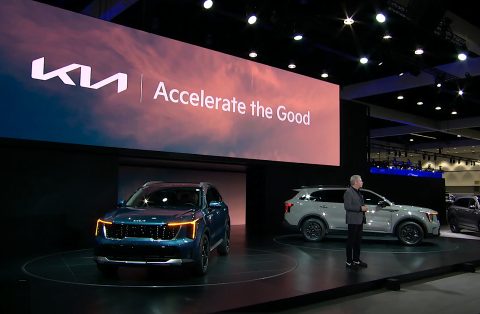
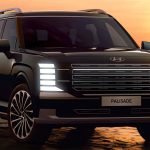
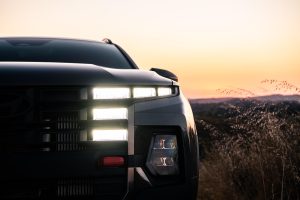

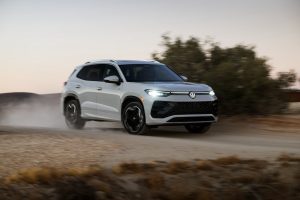
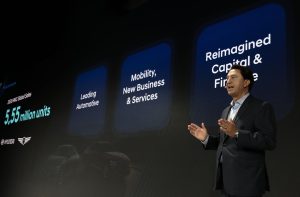
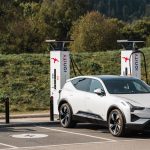
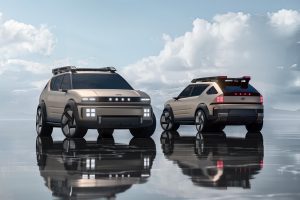
0 Comments